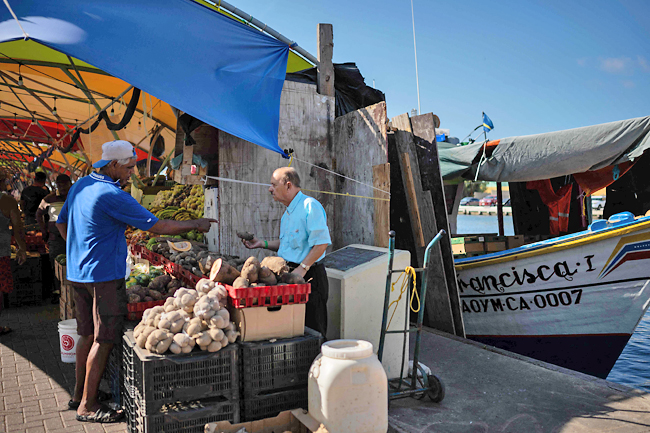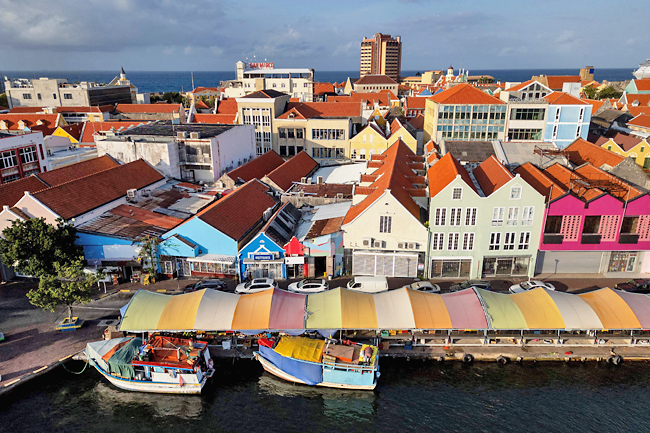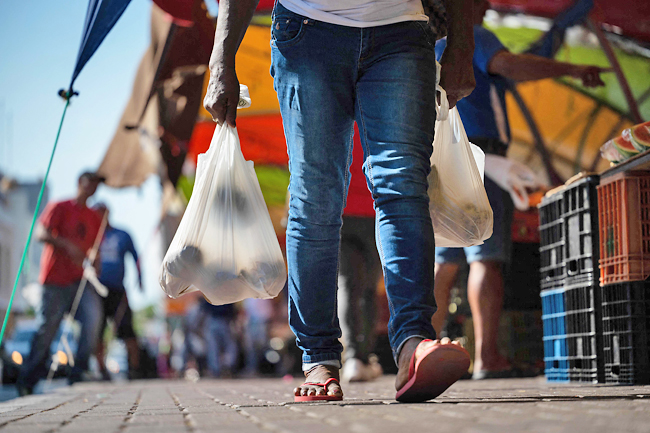WILLEMSTAD (AFP) – For four generations, the Cordero family travelled regularly from Venezuela to the island of Curacao to sell their fruit and vegetables at the picturesque “floating” market of Willemstad.
Their source of income was abruptly taken away when Caracas shuttered its maritime and air border with Curacao in 2019 in a diplomatic dispute. Re-opened last year, the market is slowly coming back to life, and the Corderos’ hopes with it.
“The re-opening was very good news for everyone, for Venezuelans and Curacaoans, as it is a source of revenue for everyone,” said 32-year-old Rene Cordero, whose father, grandfather and great-grandfather all sold goods at the market.
His dad, Ramon, first traveled to the autonomous Dutch Caribbean island of Curacao when he was 16, with his father.
Caracas halted air and sea travel to Curacao amid an international spat following the 2018 re-election of President Nicolas Maduro in elections widely denounced as neither free nor fair.
Curacao at the time received food and medicine sent by the United States (US) as “humanitarian aid” requested by opposition leader Juan Guaido, then recognised as Venezuela’s de facto leader by the White House in a failed bid to displace Maduro.
In April last year, the governments of both nations agreed to re-open the borders, and with it the market that has been there since 1918.
Its stands have always been run by Venezuelans who stay in Willemstad, the island’s capital, for about two months at a time before returning home, to be replaced by others.
“It was very hard,” said Cordero of the closure of the market which is on land but described as “floating” because its vendors all arrive on small boats that are moored next to their stands.
In the time it was closed, Rene and his father tried to make it to the US in search of an alternative income.
After crossing seven countries, however, they were forced to return to Venezuela because of a tightening of US immigration policy.
Once rich, Venezuela’s economy is in dire straits, with gross domestic product plummeting by 80 per cent in a decade, forcing more than seven million to emigrate.
Between 2010 and 2019, Venezuela and the three islands of the neighbouring archipelago of Curacao, Aruba and Bonaire, had an average commercial exchange of between USD200 million and USD300 million per year.









